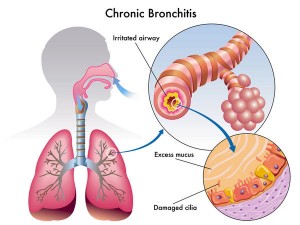Written By: Avance Primary Care MD, Dr. Jake Brayboy
Sniff! Cough! Sneeze! With winter in full swing respiratory infections are on the rise. A common respiratory infection that is seen in primary care is ACUTE BRONCHITIS. This is when there is an infection of the tubes that carry air to our lungs (this is different from pneumonia, where there is an infection of the lungs themselves). Cough is the main symptom of bronchitis but patients may also experience fever, tiredness, sore throat, chills, wheezing, and shortness of breath. It can be a rather frustrating illness to have! So what causes it and how can it be treated?
Believe it or not about 90% of acute bronchitis infections are caused by viruses, not bacteria. This number surprises many of my patients that come in to the clinic complaining of the above symptoms. They often report that in the past they were treated with antibiotics for bronchitis. However, current medical evidence states that antibiotics should not be routinely used to treat acute bronchitis. Again, this is because about 9 out of 10 times the bronchitis is caused by a virus, not bacteria. Furthermore, medications called expectorants (examples include Mucinex, Robitussin) don’t help either. Using these medications to treat acute bronchitis are not only ineffective but they can cause problems such as nausea, vomiting, diarrhea, rashes, liver irritation, and allergic reactions.

So what can be done to help treat acute bronchitis? If you are 6 years of age or older medications like Dextromethorphan (examples include Delsym, Vicks DayQuil Cough, Children’s Triaminic Long-Acting Cough) can be helpful. If your doctor hears wheezing in your lungs during the visit they may recommend an inhaler. Sometimes steroid pills by mouth can be helpful as can certain herbal medications (examples include Pelargonium and Echinacea). And in children older than 1 years of age dark honey may be helpful for the cough. Finally, the old-fashioned treatments of drinking plenty of fluids (no caffeine) and rest can be helpful.
In conclusion, acute bronchitis is a common and annoying medical problem that may last up to 3 weeks. Antibiotics should not be routinely used and there are other treatments that can be used instead to help you. Our goal at Avance is to help keep you healthy while at the same time avoiding unnecessary treatments and testing. Good luck and stay healthy!
REFERENCES
“Diagnosis and Treatment of Acute Bronchitis.”
ROSS H. ALBERT, MD, PhD, Hartford Hospital, Hartford, Connecticut
Am Fam Physician. 2010 Dec 1;82(11):1345-1350.
“Amoxicillin/Clavulanate or Ibuprofen No Better than Placebo for Acute Bronchitis.”
Am Fam Physician. 2014 Feb 1;89(3):225-226.
